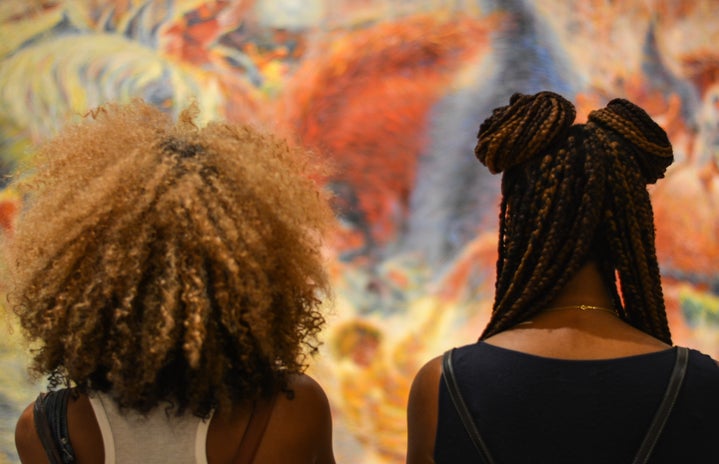Sister Citizen: Shame, Stereotypes, and Black Women in America is a book that explores the intersectional politics of being both Black and a woman in contemporary America. The author, Dr. Mellisa Harris-Perry, examines how shame is the reaction to continuous misrecognition. She demonstrates how shame is a mechanism to perpetuate racism and maintain social control over Black Americans, specifically Black women, in their fight against racial and gender stereotypes.
The very first chapter, “Crooked Room”, entailed a brilliant parallel between a cognitive psychology research on field dependence and the positionality of Black women in the United States. Dr. Harris-Perry describes a specific study where participants were asked to orient themselves in the upright position in a disoriented, crooked room in a crooked chair. While a handful of participants were able to align themselves in the upright position despite their crooked surroundings, “many participants only perceived themselves as straight in relation to their surroundings” (Harris-Perry, 29). She explains how some participants were tilted as much as 30 degrees yet report being upright because they were in alignment with images that surrounded them. Dr. Harris-Perry parallels this study to the disorientation of Black women in the United States who are constantly fighting gender and race stereotypes. It is important to recognize the constraints and influences on Black women’s behavior. “It is hard to stand up straight in a crooked room,” she says simply.
This analogy was beautifully illustrated. With it residing inside of the first chapter, it frames a lens to read the rest of her book and further examine the world. Black women face remarkably different patriarchal oppression than their white women peers, and as a white woman reading this book, it is apparent that my experience is vastly different than many Black women.Dr. Harris-Perry makes it a point to note that the theory and contemplations she is proposing are not deterministic; therefore, not to assume a conclusion but to shed light on an ideology that has not been examined.

As someone who believes in the empowerment of all women, I believe it’s important for me to explore positions and experiences that differ from my own. Politics of human experience are so much more complex and intricate than one individual experience. My brief summary and reflection do not give justice to Dr. Harris-Perry’s book, so I highly suggest you read it or borrow my copy!
Last note: Dr. Harris-Perry was the Keynote speaker for Denison’s 50th Anniversary of the Black Studies Department, which was celebrated in February of 2020!
Harris-Perry, Melissa V. Sister Citizen Shame, Stereotypes, and Black Women in America. Yale University Press, 2014.



